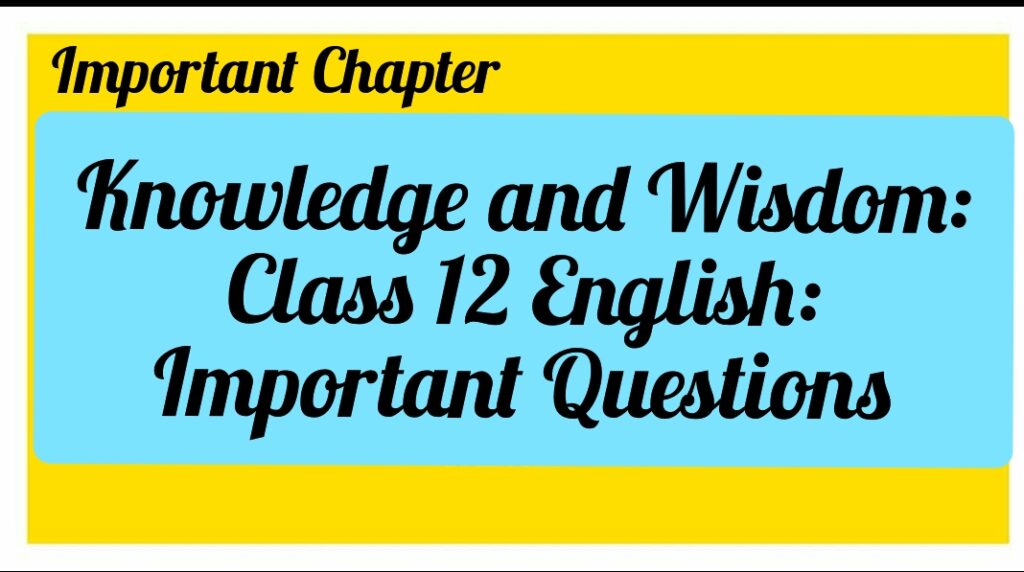a. What are the factors that contribute to wisdom?
Answer: The factors that contribute to wisdom are a sense of proportion, comprehensiveness with wide emotion, impartiality,etc.
b. What message does the writer try to convey with the examples of technicians?
Answer: The writer tries to show the dangers of relying only on technical expertise by giving the examples of technicians.
c. Which leaders does Russell say were able to mix knowledge and wisdom soundly?
Answer: According to Russell, Henry IV and Abraham Lincoln were able to combine knowledge and wisdom successfully.
d. Why is wisdom needed not only in public ways but in private life equally?
Answer: Wisdom is needed not only in public ways but in private life equally because it helps to make decisions and choose goals in our life.
e. What, according to Russell, the true aim of education?
Answer: According to Russell, the true aim of education is to install knowledge in individuals.
f. Can wisdom be taught? If so, how?
Answer: Yes, it can be taught by giving emphasis on logic and reasoning.
g. Why does the world need more wisdom in the future?
Answer: The world needs more wisdom in the future because it makes people more intelligent to make wise decision in the future.
h. According to Russell, “The Pursuit of Knowledge may become harmful unless it is combined with wisdom.” Justify this statement.
Answer: In this world, people are interested in learning and exploring new things. Most people have devoted their entire lives to learning. People can benefit from certain types of knowledge, but they can also be harmed by other kinds of information. can.
The production of weapons with an understanding of atomic composition has become dangerous to mankind. Despite his extensive knowledge of history, Hegal convinced the Germans that they were a superior race.
A terrible conflict ensued. Knowledge must be paired with compassion. You need a decisive moment to determine your purpose in life. It frees us from preconceptions about others. Without discernment, even great things can be used carelessly.
b. What, according to Russell, is the essence of wisdom? And how can one acquire the very essence?
Answer: Wisdom, according to Russell, is freedom from the tyranny of prejudice. When we are not thinking, we pay less attention to our physical health. Wisdom elevates us to higher levels of spirituality by guiding us to care and love all of humanity.
To make good decisions, you need to have a broad vision and an open mind. Understanding the end of human existence, using one’s knowledge properly, setting noble and achievable goals, managing one’s senses, gradually becoming fairer, and loving others are essential All the ways to get there.

